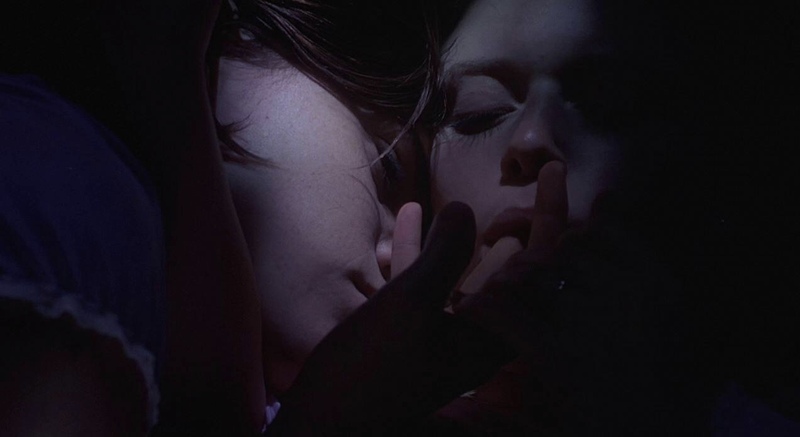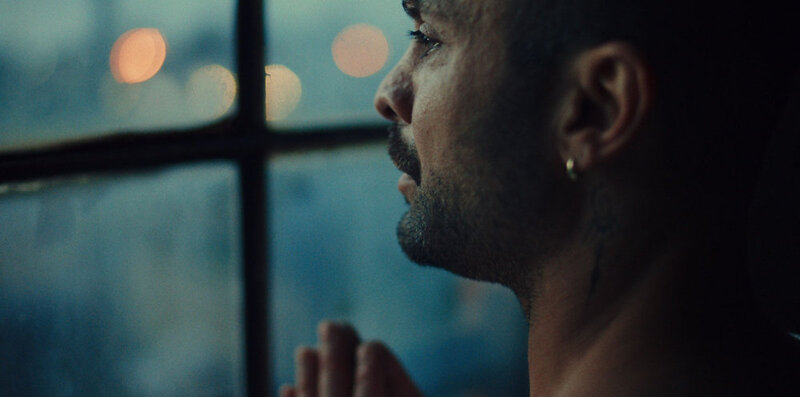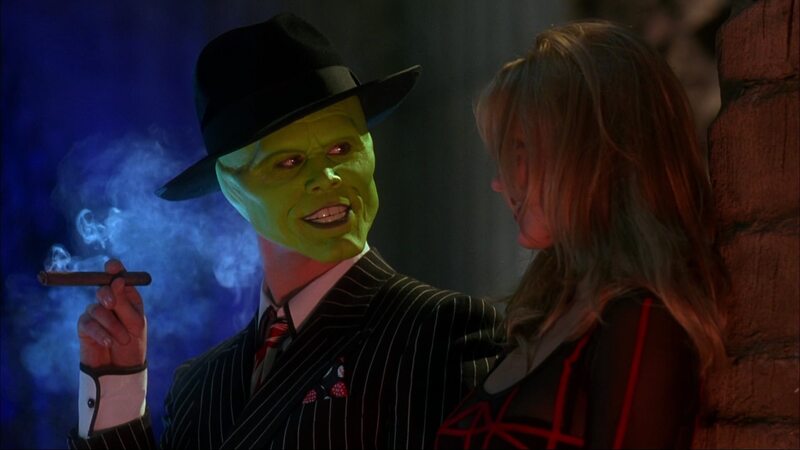
Laughter That Exposes the Harm
MOVIE REVIEW
But I'm a Cheerleader
–
Genre: Comedy, Romance, Satire
Year Released: 1999
Runtime: 1h 25m
Director(s): Jamie Babbit
Writer(s): Brian Peterson, Jamie Babbit
Cast: Natasha Lyonne, Clea DuVall, Cathy Moriarty, RuPaul, Melanie Lynskey, Michelle Williams, Bud Cort, Mink Stole
Where to Watch: available now, order your copy here: www.amazon.com
RAVING REVIEW: The candy-colored surface of BUT I’M A CHEERLEADER hides more than you know. Jamie Babbit builds a world of bubblegum pastels and gender norms not to soften the story, but to sharpen it. Beneath the powder-blue lawns and Pepto-pink dorm rooms is a clear, pointed satire of “conversion therapy” and the cultural pressure to sand queer teens down into an acceptable shape.
Natasha Lyonne is the core. Megan nails the push-pull between certainty and doubt without ever condescending to the character. Megan starts as a rule follower who has absorbed the expectations around her so completely that she can’t see herself clearly. Lyonne employs subtle, specific choices—glances, a practiced pep that thins at the edges—to portray a young woman who wants to do right by everyone and is suddenly asked to define “right” for herself. Opposite her, Clea DuVall gives Graham a quiet, grounded specificity; she isn’t there simply to be the confident foil. She bears the cost of that confidence, and the film allows us to feel it.
Babbit’s approach to satire is blissfully direct. True Directions, the “reeducation” retreat, is a factory of gender clichés. The curriculum’s lessons—“proper” homemaking for girls, hyper-masculine chores for boys—are framed as theater so obviously artificial that the absurdity becomes the point. A lesser film might have stopped at the gag. This one keeps pushing, showing how those forced roles create shame, and how shame sets people against themselves. When a joke lands here, it often leaves a bruise.
The visual language amplifies the satire. Every room appears to be designed to deny nuance: flat planes of pink and blue, tidy grids, and props that scream the gender binary like billboards. The color-coding isn’t just cute; it’s a worldview. By boxing characters into picture-perfect frames, the film literalizes the control being exerted over them—and primes the audience to notice any moment a character steps outside the lines. That heightened style can be overbearing in less assured hands. Babbit uses it as punctuation, not wallpaper, and the cast understands exactly how to perform within it.
Cathy Moriarty’s Mary, the martinet mastermind of True Directions, is a triumph of controlled excess. She’s an avatar of certainty, sold to the audience with a lacquered smile and ironclad rules that wilt the second they meet real human feeling. The performance never tips into pure cartoon because Moriarty plays Mary’s denial as if it were dead serious. She believes the script; the film exposes the script. RuPaul, playing the center’s “reformed” coach, threads a similar needle. The joke isn’t that he’s there—it’s that the performance of straightness is as theatrical as any drag show, just far less honest about its costume changes.
What gives the film staying power is its tenderness. Even as it skewers the institution, it refuses to flatten the teens. Side characters receive fleeting glimpses of personhood—a confession delivered as a joke, a forced smile that breaks, a moment of refusal that appears small but feels seismic. These beats accumulate into a portrait of community, fragile and improvised, that forms within a system meant to erase it. The film doesn’t pretend the outside world is welcoming; it insists that chosen family offers a path forward when the official paths are booby-trapped.
Babbit balances camp and sincerity with an instinct that feels rare. The film is loud when it needs to be—bold set pieces, tart one-liners, needle drops that underline a punch—but it also knows when to turn the volume down and let the room breathe. That modulation is crucial. Satire that never pauses can feel smug; satire that pauses without purpose can sag. Here, even the quiet moments have intent: a realization taking root, a boundary forming, an old story finally rejected.
As a piece of LGBTQIA2S+ cinema, BUT I’M A CHEERLEADER earns its status by refusing despair. It acknowledges harm without letting harm own the narrative. The film recognizes that shame is taught, performances are enforced, and families sometimes make love conditional. But it also argues—stubbornly, joyfully—that self-knowledge is a skill, not a crime, and that desire can be a map rather than a trap. That’s the warm current beneath the satire: an insistence on pleasure, friendship, and chosen kin as acts of survival.
The chemistry between Lyonne and DuVall is the anchor that keeps all this from floating away. Their scenes together have a lived-in awkwardness: misread signals, bravado that covers fear, laughter that loosens the hold of other people’s rules. When the film approaches its emotional payoff, it doesn’t feel like a correction to the satire—it feels like the truth the satire was clearing the way for. You can sense the characters taking authorship of their story in real time.
It’s also worth acknowledging how much the film influenced the next quarter-century of queer comedies. The camp, the pop sensibility, the frank celebration of identity—all of it echoes through later work. You can feel its DNA in a wave of titles that learned to mix sweetness with barbs, to let queer joy be as cinematic as queer pain. That legacy matters. It’s not only that the film aged well; it helped the culture grow into it.
Conversion therapy is no joke in the real world. The discomfort of laughing at it is part of the film’s strategy: it invites the audience to feel how ridiculous the rules are, so that the cruelty becomes undeniable. Babbit’s choice to use comedy as the vehicle extends the indictment to more people without blunting the point. That’s a tough line to walk. This film walks it in cheer shoes and lands the dismount.
BUT I’M A CHEERLEADER remains a bright, necessary satire that refuses to surrender compassion for bite. It’s sharp without being mean to the kids who are caught in the gears, and it’s generous without letting the system off the hook. The colors dazzle; the ideas cut; the heart shows up when it matters. Even after all these years, it still feels like a door flung open.
Please visit https://linktr.ee/overlyhonestr for more reviews.
You can follow me on Letterboxd, Instagram, Twitter, and YouTube. My social media accounts can also be found on most platforms by searching for 'Overly Honest Reviews'.
I’m always happy to hear from my readers; please don't hesitate to say hello or send me any questions about movies.
[photo courtesy of LIONSGATE]
DISCLAIMER:
At Overly Honest Movie Reviews, we value honesty and transparency. Occasionally, we receive complimentary items for review, including DVDs, Blu-rays, CDs, Vinyl Records, Books, and more. We assure you that these arrangements do not influence our reviews, as we are committed to providing unbiased and sincere evaluations. We aim to help you make informed entertainment choices regardless of our relationship with distributors or producers.
Amazon Affiliate Links:
Additionally, this site contains Amazon affiliate links. If you purchase through these links, we may receive a commission. This affiliate arrangement does not affect our commitment to honest reviews and helps support our site. We appreciate your trust and support as you navigate these links.



Average Rating